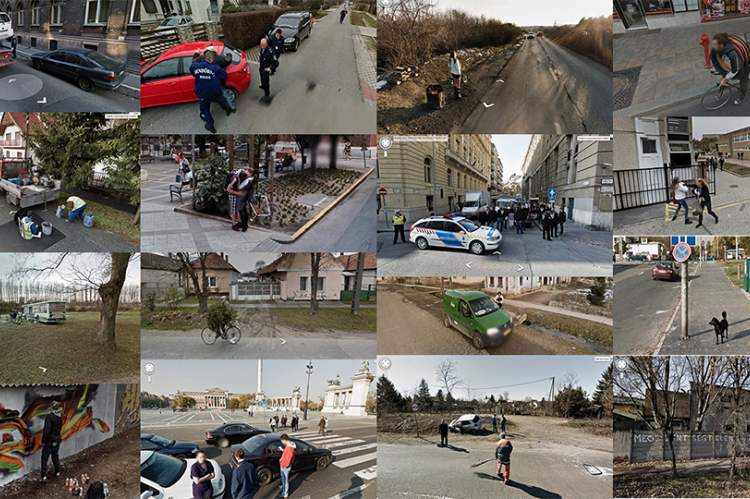The fiqh of haste
There is a bad and good version of that.
Let's take first what is wrong and is the source of a lot of trouble:
We’ve all been victims of it. I know I have. There have been times where we’ve spoken too soon or reacted without thought, immediately followed by a wish that we could take it back at that very moment. It could be that some of us are still paying the price for that one poor decision, backpedaling through its consequences. In our hearts there are a lot of the things we later regret. Due to our haste maybe, innocent people could lose their lives, insults could occur producing irreversible situations, marriages could break up upsetting a family, an income from an illegal source could come with a thousand troubles attached to it, or even a person’s faith could be weakened. That’s what haste (Isti’jal) can result.

Man is a creature of haste: soon (enough) will I show you My Signs; then ye will not ask Me to hasten them! (Quran 21:37)
Haste is in the very bone and marrow of man. If he is granted respite for his own sake, in order that he may have a further chance of repentance and coming back to Allah, he says impatiently and incredulously: "Bring on the Punishment quickly, that I may see if what you say is true!" Alas, it is too true! When the Punishment actually comes near and he sees it, he will not want it hastened. He will want more time and further delay! Poor creature of haste!
Consideration is fundamental in making decisions and judgments. Haste can lead to a fatal mistake here. Several hadiths give instructions to the judges, which are still relevant today:

The Prophet of Allah (peace be upon him) said:
“Judges are of three types, two of them will go to the Hellfire and one type will go to Paradise. The one who knows the truth and judges with it – he is in Paradise. One who knows the truth but doesn’t judge by it, will go to Hellfire. The one who doesn’t know the truth and judges between people with ignorance, will go to the Hellfire.” (Abu Daud, Tirmidhi)
The Prophet of Allah (peace be upon him) said:
“Oh Ali, if two people come to ask you to judge between them, do not judge in favor of the first until you hear the word of the second in order that you may know how to judge.” (Ahmad, Abu Daud)
In addition to judgements, there are two other major areas for which we should not regret the time. One is concerning Allah (SWT), the other is regarding man. We cannot hasten our duties towards Allah or wait the quick fulfillment of those events what are in His hands. Also, we cannot hasten the realization of those investments that require huge efforts and are in our hands. Therefore, we should not rush with our prayer and supplication or expect the immediate response from Allah to fulfill our requests or to wish Him to change of the world before our eyes. At the same time, haste can be also detrimental for the events we have in our hands if we want to embrace or pass on the knowledge. If we raise children, students or demand immediate understanding from people. Nor can we expect a return on business immediately after our investments.
The haste or endeavor is commendable if we do good, restore the rights of others, help when the need arises, hurry to repent our sins as soon as we become conscious about those.
Life is so short. The competitors for paradise are so many, but our Lord is most deserving. When it comes to your journey to the Hereafter, you are in a race against time. According to the Quran, the greater the goal is, the greater one’s rush should be towards it.
When speaking about worldly pursuits, the Quran uses the term شوا ُم ْاَف” / Walk” (67:15)
When speaking about our journey to prayer, it uses the term واَ ْسع ْاَف” / Proceed” (62:9)
When speaking about our pursuit of Paradise, it uses the term واُقِساب” / َRace!” (57:21)
But when speaking about our pursuit of Allah, it uses the term روا ُّفِ َف” / Flee!” (51:50)
Not every ambition in life deserves the same amount of effort. Let your slogan in life be the words of Prophet Musa (peace be upon him) who said:

He replied: "Behold, they are close on my footsteps: I hastened to thee, O my Lord, to please thee." (Quran 20:84)
I could have brought up a number of quotes, hadiths and proverbs on the subject of “haste”. My goal was to present the classification of Sharia in that regard. According to that classification haste in the good and bad sense must be treated separately. In addition, there is a difference how "haste" can be interpreted in regard of Allah and of man. And the haste that arises among man is broken down into further categories of judges and of non-judges. From this deduction we can see that those who judge over human destinies have a greater responsibility than others.
The topic of “haste” was just one example. I could have come up with “responsibility” and several other topics where the same logic prevails.
This categorization leads to the issue of professional liability. Here we have highlighted the profession of judges, but in terms of maintaining human health, doctors take the place of judges because when the patient is in their hands, they take decision. So, the judge is always the one who makes a judgment at a particular moment in his/her profession. In a hospital, it's the doctor.




















